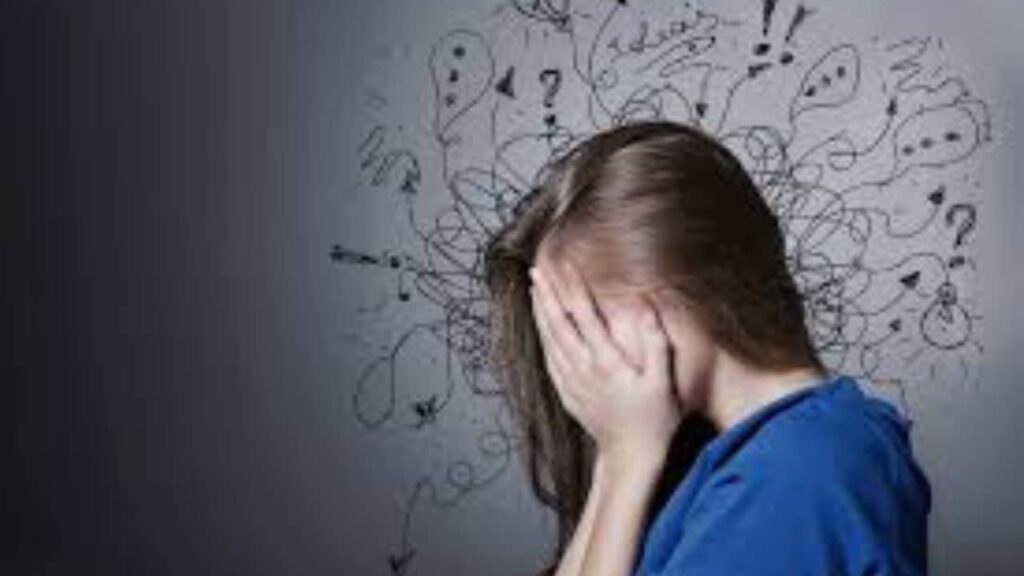It is normal to occasionally feel depressed, despairing, or in a bad mood in the fast-paced world of today. However, when these feelings persist and interfere with daily life, it may be a sign of depression. For everyone impacted by this mental health illness, it is critical to comprehend depression, its symptoms, diagnosis, and available treatments. In this comprehensive guide, we’ll explore into various aspects of depression, including its definition, symptoms, diagnosis according to the Depression ICD-10 coding system, and much more.
Definition
Depression, also known as major depressive disorder (MDD) or clinical depression, is a common mental health condition characterized by persistent feelings of sadness, worthlessness, or hopelessness. It affects how you think, feel, and handle daily activities, often leading to a significant impact on various aspects of life, including work, relationships, and physical health.
Symptoms
Understanding the signs of depression is important for timely diagnosis and effective treatment. Common symptoms of depression may include:
- Persistent feelings of sadness, emptiness, or hopelessness
- Loss of interest or pleasure in activities once enjoyed
- Changes in appetite or weight
- Sleep disturbances, such as insomnia or excessive sleeping
- Fatigue or loss of energy
- Feelings of guilt or worthlessness
- Difficulty concentrating or making decisions
- Thoughts of death or suicide
Depression Test
Taking a depression test can help determine the degree of symptoms and provide guidance for future treatment if you think you or someone you know could be suffering from depression. Depression screening tests are available online from several sites, and they can give you important information about your mental health. However, for a thorough assessment and diagnosis, consulting with a medical expert is necessary.
Depression Medication
Medication, psychotherapy, and lifestyle modifications are frequently used in conjunction with the treatment of depression. Tricyclic antidepressants (TCAs), serotonin-norepinephrine reuptake inhibitors (SNRIs), and selective serotonin reuptake inhibitors (SSRIs) are examples of antidepressant drugs that are frequently used to help treat symptoms and enhance mood regulation. Finding the right drug and dose for your unique needs requires close collaboration with a healthcare professional.
Depression ICD-10
The International Classification of Diseases, Tenth Revision (ICD-10), is a coding system used by healthcare professionals to classify and code diseases, including mental health conditions like depression. In the depression ICD-10, it is classified under F32 (major depressive disorder, single episode) or F33 (major depressive disorder, recurrent episode), with specific codes assigned based on factors such as severity, presence of psychotic features, and episode duration.
Certainly! Here’s a table outlining depression’s ICD-10 classification:
| Depression ICD-10 Classification | Description |
|---|---|
| F32 – Major Depressive Disorder, Single Episode | Characterized by a single depressive episode lasting at least two weeks. |
| F33 – Major Depressive Disorder, Recurrent Episode | Involves multiple episodes of depression separated by periods of partial or full remission. |
Depression Quiz
Engaging in quizzes or self-assessment tools related to depression can help increase awareness and understanding of the condition. Online depression quizzes often include questions about symptoms, mood patterns, and daily functioning, providing users with a preliminary indication of whether they may be experiencing depression. However, it’s essential to interpret quiz results in conjunction with professional guidance for an accurate assessment.
Depression Glass
Depression glass is the term for a kind of valuable glassware made in the United States during the Great Depression, even though the term may also refer to a mental health disorder. Depression glass is highly prized by collectors and enthusiasts alike because of its rich colors and complex designs. It also has historical significance..
Depression Synonym
Terms like sadness, melancholy, and despair are frequently used similarly with depression. Even though these phrases could refer to similar emotional states, depression is differentiated from fleeting feelings of sadness or sorrow by a broader range of symptoms and clinical criteria..
Depression and Anxiety
Anxiety and depression frequently coexist, with many people experiencing symptoms of both disorders at the same time. Anxiety is defined by excessive concern, fear, or nervousness about situations or events in the future, whereas depression is defined by continuous unhappiness and loss of interest. Treatment for depression and anxiety may involve a variety of strategies, such as counseling, medicine, and stress-reduction methods.

Depression Memes
Memes about depression have become more and more common on social media sites in recent years, giving people who are struggling with mental health issues a sense of humor and relatability. Sadness memes might provide temporary entertainment or a feeling of solidarity among people who are impacted, but it is important to acknowledge the severity of sadness and get the help you need when you need it.
Treatment
Medication, therapy, and self-care techniques are frequently used together for effective treatment of depression icd-10. Psychotherapy, including cognitive-behavioral therapy (CBT) and interpersonal therapy (IPT), may help people recognize and change harmful thought patterns, create coping mechanisms, and enhance their connections with others. Additionally, lifestyle changes such as regular exercise, adequate sleep, healthy nutrition, and stress management techniques can complement treatment efforts and promote overall well-being.
Depression Screening
Routine depression screening is recommended by healthcare organizations to identify individuals at risk and facilitate early intervention. Screening tools such as the Patient Health Questionnaire (PHQ-9) or the Beck Depression Inventory (BDI) are commonly used in clinical settings to assess the presence and severity of depression symptoms. Early detection and treatment can significantly improve outcomes and quality of life for individuals living with depression icd-10.
Depression Quotes
For anyone experiencing their mental health journey, inspirational quotations about depression can provide comfort, encouragement, and recognition. Whether they are posted on social media, used as affirmations, or included in therapy sessions, inspirational quotations can speak to people who are depressed and let them know they are not alone in their troubles.
Medication List
There are many drugs available to treat depression, each with distinct modes of action and possible adverse effects. Common antidepressants include:
- Selective serotonin reuptake inhibitors (SSRIs): Prozac, Zoloft, and Lexapro
- Serotonin-norepinephrine reuptake inhibitors (SNRIs): Effexor, Cymbalta, and Pristiq
- Tricyclic antidepressants (TCAs): Elavil, Tofranil, Pamelor
- Monoamine oxidase inhibitors (MAOIs): Nardil, Parnate
- Atypical antidepressants: Wellbutrin, Remeron, Trazodone
Depression During Pregnancy
Many women find pregnancy to be a difficult period, and for some, it may also be the beginning or worsening of depressive symptoms. Feelings of depression or anxiety during pregnancy can be attributed to hormonal fluctuations, stress, and worries about birthing and parenting. Expectant mothers must put self-care first, ask for medical professionals’ assistance, and research safe treatment options for both mother and child.
Summary
Depression is a complex and multifaceted mental health condition that can have a profound impact on individuals and their loved ones. By increasing awareness, promoting early intervention, and providing access to effective treatment and support resources, we can work together to reduce the stigma surrounding depression icd-10 and improve the lives of those affected. Remember, you are not alone, and help is available.
Depression causes
Certainly! Here are the common causes of depression listed in a table format:
| Causes of Depression |
|---|
| Biological Factors |
| Genetics |
| Neurotransmitter imbalances |
| Psychological Factors |
| Trauma |
| Environmental Factors |
| Childhood adversity |



